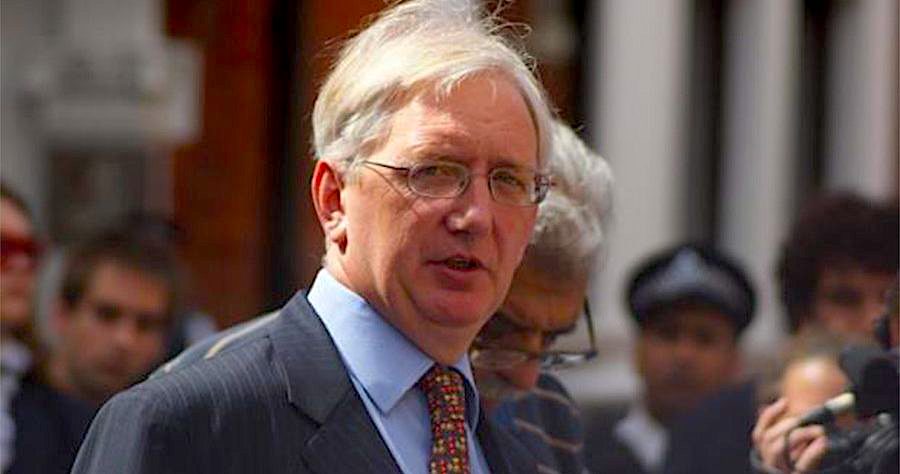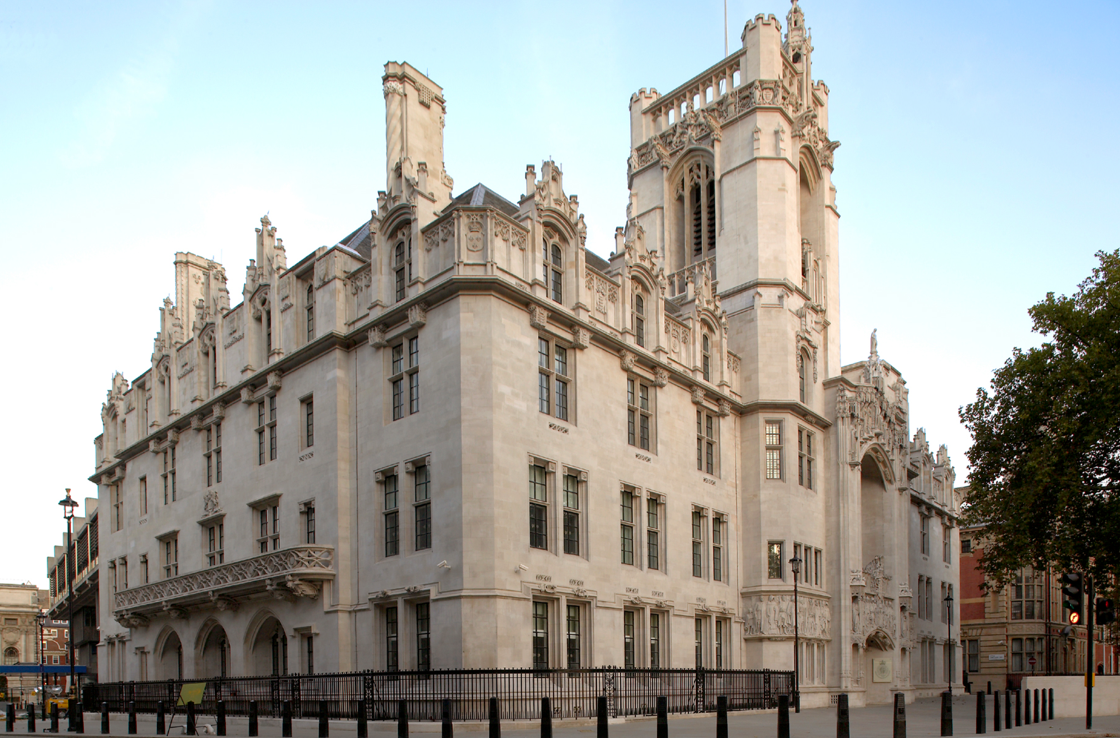Alexander Mercouris says the conviction of former British diplomat Craig Murray undermines the right of the media to report cases, which is vital to protect the right to a fair trial.

Tower Bridge in London. (FlyingShrimp, CC BY-SA 4.0, Wikimedia Commons)
By Alexander Mercouris
Special to Consortium News
 In the last Letter from London, I discussed the background to the contempt of court case against the historian, journalist and former diplomat Craig Murray for his reporting of the criminal and civil proceedings against Scotland’s former first minister, Alex Salmond, on allegations of sexual assault, for which he was acquitted on all charges at trial.
In the last Letter from London, I discussed the background to the contempt of court case against the historian, journalist and former diplomat Craig Murray for his reporting of the criminal and civil proceedings against Scotland’s former first minister, Alex Salmond, on allegations of sexual assault, for which he was acquitted on all charges at trial.
I also discussed in that letter the political situation in Scotland: the rise of sentiment favoring independence from Britain, the power struggle within the Scottish Nationalist Party (SNP) and the alarm that the growth of pro-independence sentiment in Scotland is causing in London.
The case against Murray has resulted in a judgment convicting him of contempt of court. He is now at serious risk of up to two years in prison with sentencing set for May 7.
Before discussing the judgment itself there is a point to be made about one aspect of the Court’s conduct that is seriously worrying.
There was an eight-week gap between Murray’s trial and the announcement of his conviction.
The trial lasted only one day, the evidence was limited in its extent and it was largely agreed by the prosecution and defence lawyers. It is not clear why the Court needed two months to deliver its judgment. Normally after such a trial, judgment would be delivered in a few days or a week at most. The delay seemed both cruel and unnecessary to Murray and his family.
It is useless to speculate about the reason why, but Article 6(1) of the European Convention on Human Rights requires that determination of a criminal charge should take place at a “fair and public hearing within a reasonable time.” For the record, eight weeks in a case like this does not seem like a “reasonable time.”
Case in Three Parts

Craig Murray.
The case against Murray was in three parts: (1) that his reporting of the case against Salmond might have influenced its outcome; (2) that he had improperly reported facts about the dismissal of one of the jurors; and (3) that his reporting had made possible the “jigsaw” identification of some of the witnesses who gave evidence against Salmond at his trial.
No evidence was produced at Murray’s trial that his reporting influenced the outcome of the case against Salmond. Nor was any evidence produced that anyone identified any of the witnesses because of anything that Murray wrote.
The previous Letter from London pointed out that this made the case against Murray look abstract and made me wonder what was the point in bringing it?
The Court in its judgment rejected the prosecution’s case that Murray’s reporting might have influenced the outcome of Salmond’s trial. It also rejected the prosecution’s case that Murray’s reporting about the juror was a contempt of court.
The part of the case that involves the juror always looked exceptionally weak and the Court had no difficulty dismissing it.
The Court’s rejection of the prosecution’s case that Murray’s reporting might have influenced the outcome of Salmond’s trial, is an indisputably correct decision.
Though the prosecution, the defence and the judge had all appeared to agree at Murray’s trial that Salmond’s trial had been fairly and properly conducted, it was worrying that if the Court had decided that Murray was in contempt of court because his reporting might have influenced the outcome of Salmond’s trial, then some people would have claimed that Murray’s reporting did affect the outcome of Salmond’s trial, which would have, in the absence of that reporting, had a different outcome.
That might have led to claims that Salmond’s trial was a mistrial, with Murray being blamed. It might even have led to demands that Salmond be retried on the same charges all over again on the grounds that Murray’s reporting had rendered his acquittal unsafe.

Scottish Cabinet in 2007, with Nicola Sturgeon and Alex Salmond in foreground. (Scottish government)
That would have been wholly wrong, but given the fraught political atmosphere in Scotland, and the extraordinarily bitter feelings which Salmond’s trial has provoked, I can easily see how in that situation the Scottish prosecuting authorities and the Courts might have buckled under pressure, and been swept along.
With the Court’s decision to reject this part of the prosecution’s case, that disastrous outcome has been avoided.
The part of the judgment which finds Murray in contempt of court nonetheless provokes serious concern.
The ‘Objective Test’
The Court acknowledged that there is no evidence that anyone did in fact identify any of the witnesses as a result of anything which Murray wrote. It also said that Murray’s intentions were irrelevant. Even if Murray had had no intention of writing anything which might have led to the identification of any one of the witnesses, and even if there were no evidence that anything he wrote did in fact result in anyone identifying any one of the witnesses, Murray would still be guilty of contempt of court if he failed what the Court called an “objective test” which decides whether something written might notionally identify a witness.
It is upon this reasoning that Murray has been convicted.
That may be a correct summary of the current law. However it seems that it sets the bar for court reporting extraordinarily high. I wonder whether the test is indeed as the Court supposes it to be, and if it is, whether the Court has applied it properly.
In my previous letter I wrote of my concern that a conviction in Murray’s case would undermine the right of the media to report cases, which is important in order to protect the right of accused persons to a fair trial, as enshrined in Article 6(1) of the European Convention on Human Rights.
It seems that with this ruling that is exactly the danger which the media are now facing.
According to this judgment, it seems that even if, when the media reports a case, the media has no intention of breaking the law, and does not intend that what it reports should lead to the identification of a witness — and even if no witness is in fact identified because of anything the media has reported, then the media is still guilty of contempt of court if the Court decides that its reporting has failed what the Court says is an “objective test.”
The concept of an “objective test,” entirely divorced from both intention and harm (whether that harm is actual or prospective) appears to be both arbitrary and contentious. One wonders how “objective” such a test can actually be and how court reporting of a case like Salmond’s would be possible on this basis?
I doubt that such a ruling would be possible in the United States. In the U.S., court reporting carried out in good faith, with no intention of breaking the law or of doing harm, and with no evidence of harm being committed, should — one would think — be protected by the First Amendment.
To Be Appealed
Murray has said that he intends to appeal his conviction to the U.K. Supreme Court in London.
I will be watching this appeal closely, as I am sure many journalists will. One hopes the Supreme Court accepts the appeal and uses it to clarify the issue of this “objective test” and also that it not only sets aside Murray’s conviction but that it accepts that there is a balance to be struck between the protection of witnesses and the need for open justice, which is the defendant’s right, and which is necessary in order to ensure a fair trial.
This judgment fails to strike that balance, and if allowed to stand would make future reporting of cases like Salmond’s extremely difficult if not impossible.
Over and above the decision to convict Murray on the basis of an “objective test” — divorced from intention and actual or prospective harm — there are other troubling aspects of the decision.
The Court, perhaps unsurprisingly, did not consider what is the single most baffling thing about this whole case, which is why did the prosecution delay in bringing the case if it thought that Murray was in contempt of court, and why, given the absence of any evidence of harm following that delay, it decided to bring the case at all?
The only point where the Court considered the question of the delay was when it decided, entirely correctly, that the delay made unsustainable the prosecution’s claim that Murray’s reporting might have influenced the outcome of Salmond’s trial.
The Court also did not seriously consider the question of why the prosecution took no action, even as Murray continued with his reporting, which the prosecution says was a contempt of court.
This caused Murray to continue with a course of action which made his alleged contempt of court still greater. It also incidentally, placed the witnesses at greater risk of being identified if one believes — as the prosecution presumably does — that Murray’s reporting risked their identification.
The Court also rejected in summary fashion Murray’s defence based on his right of free expression as set out in Article 10 of the European Convention on Human Rights. It was altogether too quick to do this given, as I contend, that Murray’s reporting would have been protected if it had taken place in the United States under the First Amendment.
Lastly, the Court was brutally dismissive of two affidavits which Murray submitted to the Court in his own defence. It dismissed the contents of these affidavits in scathing terms, in a way which made it appear (at least to me) as if the judges had in some way been personally offended by them.
The Court’s strong reaction to these affidavits is no doubt in part accounted for by the fact that Murray discusses in them the allegations of a plot against Salmond, which supposedly lay behind the sexual assault allegations for which he was tried. This alleged plot was discussed in my previous letter.
The Court did not probe into these allegations, which as it is not an investigative agency is perhaps unsurprising. However since it said that the contents of the affidavits were ‘irrelevant’ its strong reaction to them is inexplicable.
In summary, this is a troubling outcome to a troubling case.
Murray must now look forward to his May 7 sentencing hearing. He is a person of good character, with no previous convictions, who acted in accordance with his sincerely held beliefs. There is no evidence that anyone has suffered harm as a result of his actions, and nor has he ever used or threatened violence against anyone. He is also someone in his sixties with a family, including a young child, who has serious health problems.
It would be beyond disturbing if the Court were to sentence Murray to prison in light of all this. It would add to the already very serious concerns about this case.
Unfortunately the strange way in which it was brought against Murray, the unnecessarily strong language the Court used in its discussion of his affidavits, and the fact of his conviction all leaves one from confident that a prison sentence will be avoided.
If it does happen, then Murray would merit the type of support that he has given to his friend, the imprisoned WikiLeaks publisher Julian Assange.
Alexander Mercouris is a legal analyst, political commentator and editor of The Duran.
The views expressed are solely those of the author and may or may not reflect those of Consortium News.




Thanks for a very convincing and nicely written article, as it’s usually the case from Alexander Mercouris.
However, having followed most of these developments in Craig Murray’s blog, I feel compelled to point out that there is a relevant point which should be corrected. It is the complainants and not the witnesses in Alex Salmond case who have their identity protected, and whom this latest ruling finds Craig Murray potentially jigsaw-identify. I think this makes the whole situation even worse…
When the ruling class gets its clutches on systems of government and all their institutions, kiss any semblance of legality and justice goodbye.
Craig is my mind, a specifically-chosen target, not only for the reach of his blog, but his unflinching and unwavering commitment to the truth reigning above all. Principle personified, that is Mr Murray.
As such, his consistent and to the British government’s ire, his persistent defense of Julian Assange weighs heavily against him in the effect it engenders in the public mind not only in the UK, but worldwide. This makes him the logical ‘next-in-line’ for the ‘Five-Eyed-State in which to set a further example of “We’ll come after anybody. We are impunity itself. We will brook no resistance.” That’s a significant part of what I’m seeing here, an unbridled assertion of state power as a lesson to those yet possessing the courage of personal integrity.
The unwritten part of this story lies in this man’s persecution by Scottish authority, not by the actual in-person bewigged London-based ‘Crown,’ judiciary per se. This maintains a mask as to who is actually doing the dirty deed—his ‘own’ in public doing the deed in this case. At least at first glance.
Yet a prevailing line of thought I have read in Craig’s blog over the years—from commenters in particular—is that Nicola Sturgeon via her leadership maintained regular back channel comms with the Brits at the highest levels, i.e. her leadership was meant as much to forestall progress toward Scottish Independence as much if not more than actually pursuing it.
“Oh what a tangled web we weave, when first we practice to deceive…”
The above dovetails nicely with the persecution / prosecution of Alex Salmond as well; he after all, along with Craig Murray, represents and remains in his primacy first as of and among the two most renowned public personages advocating for that independence. Voila—two birds with one stone.
I’ve no business taking sides on the matter of Scottish Independence, so I won’t. But I know a railroad when I see one.
Craig Murray is a hero of mine. May truth, justice, and reason prevail in his being granted continued freedom. We need his voice. And of course, every bit as much, the same goes for Julian Assange.
Make it so.
Journalists are not protected in the US. The US First Amendment is essentially toilet paper, as is the rest of the Constitution.
This is not the Information Age, it is the Disinformation Age. A handful of corporate media giants control the vast majority of media. The output of official propaganda (such as the NYT stating Russian election hacking as a fact based on “anonymous intelligence officals citing secret documents”) is their primary function.
Anything that counters the Official Line is targeted erasure (see Google’s algorythim “adhustments” that largely disappeared a number of alternative, independent sites from search results [World Socialist Web Site, etc.], WaPo’s PropOrNot list of 200 propaganda sites [based on a list posted on an anonymous website devoid of references, and which included a number of highly reputable independent sources], Facebook and Twitter’s banning The NY Post because of their accurate article about Hunter Biden influence peddling a week before the US election, etc.).
Mr. Murray’s ‘crime’ is the same as Julian Assange’s, he had the temerity to think that honest investigation and the revealing of information has a place in the world. If you want to know how far they will go research Michael Hastings.
Craig Murray’s problems may well stem from his courage in disclosing that Russia was not the source of the Clinton email leaks, an unpardonable sin in Deep State and corporate media circles (see, e.g., hXXps://www.washingtontimes.com/news/2016/dec/14/craig-murray-says-source-of-hillary-clinton-campai/). And it is a travesty, a link in a series of travesties that have accelerated the demise of democracy and liberty in our sad world.
That’s interesting. I wouldn’t have thought of that, but now that you mention it, the UK does indeed seem to be in thrall to the US stand on various things. Their obedience regarding Assange being front and center. It wouldn’t surprise me to learn that you are correct!
A part of it, yes. But not the totality.
> leaves one from confident that a prison sentence will be avoided.
That should read “leaves on FAR from confident …”, of course!
A fine and very cogent analysis and critique of the proceedings in the patently malicious and legally dubious Murray “contempt” case, a case which should never have been brought and quickly dismissed by any competent judge if it were.
Most of us, I assume, already know the particulars of this sordid case and therewith the manifest reasons for why none of the arguments made by the prosecution, and, a fortiori, the far from disinterested judge when issuing the verdict, is anything but risible. Indeed the entire matter is naught but an absurd abuse of the legal system, but one which, unfortunately, has very serious consequences, not merely for the man falsely convicted on the basis of what is nothing more than one person’s imagination of harms that “might” have happened, but demonstrably did not, harms, that is, which were purely “subjective” speculations having nothing whatsoever to do with the vaunted criterion of “objectivity” so frivolously advanced ex post facto, evidently in an ad hoc attempt to placate the public apropos a truly dreadfully mistaken verdict, but also, as Mercouris, in his inimitable manner, nicely details here, most ominous consequences, especially via the dangerous precedent it establishes, or at least threatens to establish, for the entire system of jurisprudence in Scotland.
There is much more to find wanting in the court’s frankly rather flippant face-saving invocation of its once again purely imaginary “objective test” criterion. But allow me to leave that matter aside and merely strongly endorse another of Mercouris’ important points, viz.:
“The Court also rejected in summary fashion Murray’s defence based on his right of free expression as set out in Article 10 of the European Convention on Human Rights. It was altogether too quick to do this given, as I contend, that Murray’s reporting would have been protected if it had taken place in the United States under the First Amendment.”
It is ironic, I believe, that in this case, the alacrity of the determination of a facile verdict is conjoined to a gratuitously long delay of its public release equally egregious, just as Mercouris points out before then providing many good reasons for why the the long delay poses far from trivial dangers. Clearly we have here a case of “justice delayed” actually morphing into “justice denied,” although, of course, the denial here involves much more than the gratuitously agonizing delay.
The more ominous danger noted by Mercouris in the passage just cited is, however, precisely the clearly far from deeply considered manner in which the verdict was arrived at. “Summary fashion” is too polite a characterization of just how blithely the court dismissed the entire matter of Murray’s “right to free expression,” including his right to document features of the Salmond trial he observed, in part first-hand, in his many blog entries and other writings. Indeed, just as Mercouris observes, almost everything about the trial and the crafting of the verdict, if hardly its public release, was “altogether too quick,” to which we might well append “and altogether too superficial.” The issues raised by the trial involve some of the most profound and contentious matters regarding the proper extent and protection of a citizen’s most basic civil liberties. One has the impression, however, that none of these deeper issues were considered, that the court was determined to view the matter as narrowly as possible, as a mere matter of legal casuistry, of choosing a particular law and then artificially fitting the living feet of case to the narrow shoes of the statute chosen, to provide a “summary decision,” or more honestly, “a summary conviction” in the case upon such a thin, prejudiced and distorted basis.
The evidence establishing the bias of the court against Murray is to be found throughout the recordings’ proceedings. Indeed, even without the use of a “jigsaw,” or the eponymous “puzzles” it creates, it is not difficult to “piece together” here an ulterior intention, whether conscious or merely latent, on the part of “the Crown” to side with the prosecution despite the rather embarrassing paucity of all its arguments. Mercouris mentions some of these in his article here, for example, the lack of rigor in the deliberation before the verdict. Indeed, the court, so it seems, acted with no inkling of the huge significance of the case for Mr. Murray’s life, the future of the system of justice as a whole, for the practice and limits of legitimate journalism, and ultimately, for the rendering of the Scottish public sphere either a bit more or, as one must now fear, less “open” in Karl Popper’s sense of that term.
Mercouris also highlights another aspect of the court proceedings which displays clear bias against the defendant and which should give anyone concerned with preserving what few civil liberties we in Western societies still possess pause for a deeper reflection than they were given in the Murray case.
“Lastly, the Court was brutally dismissive of two affidavits which Murray submitted to the Court in his own defence. It dismissed the contents of these affidavits in scathing terms, in a way which made it appear (at least to me) as if the judges had in some way been personally offended by them.”
This observation too, is right on the bullseye in my opinion. I have read the two affidavits in question. What they do is provide Murray the only opportunity he still had available to explain all of his actions and make his case that he did nothing meriting punishment from the state. The “tone” of these documents is hardly inflammatory, or even highly polemical. He is in fact merely attempting to tell his side of the story, something which had up to that point been strictly proscribed to him. Mercouris flags the rather gobsmackingly arrogant and negligent dismissal of Murray’s two affidavits and the highly emotive, even “scathing,” language in which these stubborn refusals to consider all of the clearly highly relevant evidence were articulated.
Finally, Mercouris’s comment that the judges seemed as if they “had in some way been personally offended by them,” reveals, I think, the deepest level of prejudice operative throughout the entire trial. Some of the judges may well indeed have felt personally offended, even though they are nowhere named [except perhaps via some chimerical “jigsaw” cipher] since, although Murray does a fine job of containing what must be his own, vastly more justified, feelings of having been “offended” to the bone by the whole dismal affair in the two largely factual affidavits he submitted.
It is, one suspects, this cavalier contempt for the rights of the accused, and all persons in similar circumstances, that operated throughout the entire sordid trial. A trial where the prosecution was allowed to deploy its preposterously stitched-up charges, knowing full well at the outset that it had the sympathy, and indeed partial collusion, of the court. A trial, which, as I stated at the outset, should never have been allowed to see a courtroom in the first place, and which, if and when submitted, should have been dismissed post haste as a clear attempt by aggrieved parties, including perhaps one of the judges involved in the equally pernicious Salmond case, to wreak revenge against Mr. Murray for having foiled their malicious plans to put Salmond in prison forever by consistently merely telling the truth.
One can’t consider the Murray case without continually being reminded of similar manifestations of the same kind of outlandish prejudice, mendacity, and revanchist intentions which have been allowed to run wild in the still more dramatic case of the unremitting injustice and physical torture that has been Julian Assange’s sorry fate for the last ten or so years. The similarities between the two cases are legion. I won’t go into that here, except to say, in conclusion, that what both cases abundantly reveal is that, at least in the UK, — although the situation in the US is as least as dire — the criminal justice system has now been largely “captured” and corrupted by political forces concerned not a whit or a whiff with the determination of something now as inscrutable to them as the provision of justice, but only with something more tangible to them, i.e. increasing their own power and wealth.
Thank-you William Fusfield for adding these insights and I thank the author of the article as well. I keep thinking eventually justice will be served, but lately with respect to Mr. Craig Murray and Mr. Julian Assange, the evidence suggests elsewise – at least in regards to formal justice systems in place within sovereign nations. It strikes as if we have entered Alice’s wonderland. Something has got to give and I hope this occurs soon. The longer these travesties of justice continue the greater the consequences will be. I think that is evident as well.
~
Regards,
BK
“Telling your own side of the story” is certainly NOT what happened when Russia was accused by Theresa May of poisoning the Skripals in 2018. An astounded Kremlin spokesman at once explained that there was no motive, that exchanged spies were never touched for obvious reasons, that the election of Pres. Putin was soon to occur and also the World Cup, that the novichok had never been made in Russia and that Russia had been accepted as clear of chemical weapons, but only once did I see that reported. After that came the punishment and the lies for a year, then all was forgotten.
Poor Julian Assange is caught in the same “justice system” and I agree with Veracity above about the USA.
I hope he doesn’t end up with feeling like he’s in living a Kafka novel, or stuck in the land of ,” 1984.” The UK, like America , seems to get more odd by the minute. Maybe climate change is here now and humans lacking sufficient oxygen are sending us into a “Brave New World,” which is not very brave at all..